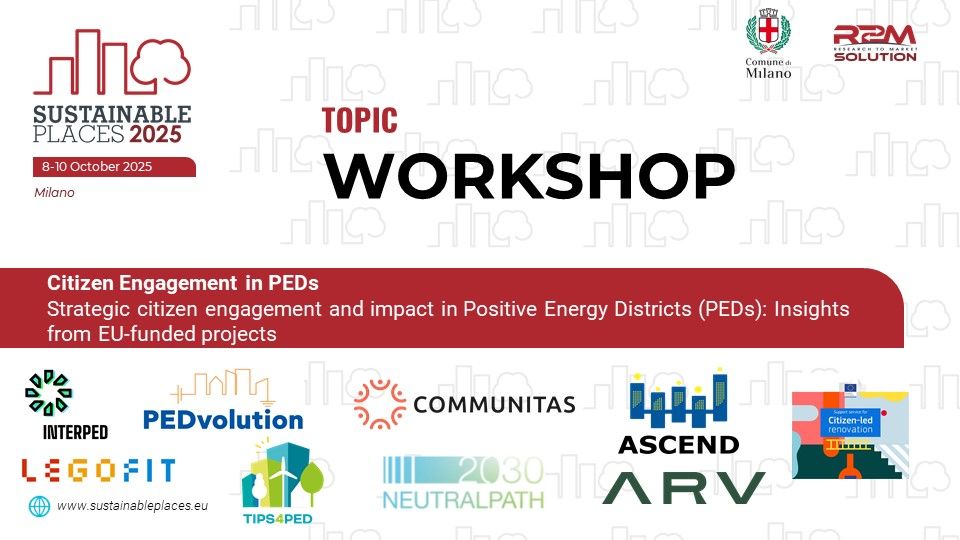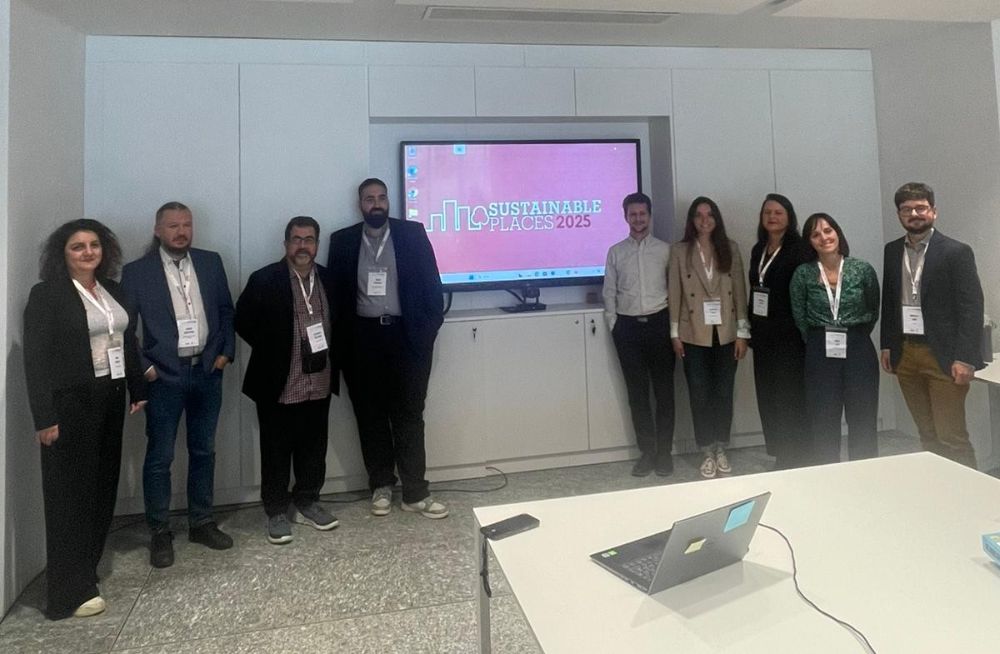Driving the Energy Transition Together | PEDvolution at Sustainable Places 2025

The PEDvolution consortium participated in Sustainable Places 2025, held in Milan, Italy, and co-organised by R2M Solution and the Comune di Milano. The conference brought together leading European research and innovation projects to share progress, exchange knowledge, and foster collaboration toward sustainable and energy-positive urban transformation.
Citizen engagement at the heart of Positive Energy Districts
Positive Energy Districts (PEDs) redefine how we think about energy in cities — evolving from single-building efficiency to coordinated, district-wide energy systems. This evolution requires not only technological innovation but deep and continuous citizen engagement and participation is also imperative. Moving beyond traditional top-down governance, PEDs depend on citizens as active co-creators in their design, operation, and long-term success, ensuring that Europe’s energy transition is inclusive, resilient, and future-proof.
The development of PEDs is closely linked to the rise of energy communities, which enable citizens to take part in collective energy production and self-consumption while fostering new forms of cooperation, trust, and shared responsibility. Digital tools and platforms further support this process by lowering participation barriers, encouraging co-creation, and strengthening the governance of community-driven energy initiatives.

Workshop: Strategic Citizen Engagement and Impact in Positive Energy Districts
Within this framework, PEDvolution joined its sister projects for the workshop “Strategic Citizen Engagement and Impact in Positive Energy Districts”, which took place on Friday, 10 October 2025 during the Sustainable Places conference. The session brought together eight EU-funded sister projects — InterPED, TIPS4PED, ARV, COMMUNITAS, PEDvolution, Citizen-led Renovation, NEUTRALPATH, LEGOFIT, and ASCEND — each at different stages of development and implementation.
Representing PEDvolution, Sympraxis Team delivered the presentation “Empowering PED Innovation: Building on a Tradition of Local Stakeholder Engagement.” The presentation emphasised how local collaboration and stakeholder participation form the foundation for effective PED implementation, detailing the project’s community-driven approach and implemented methodology toward achieving and monitoring a PED ecosystem.
The workshop explored a wide range of themes, from digital twin applications and user-centred energy tools to co-creation methodologies designed to empower citizens as active co-creators of energy communities. Together, these perspectives offered a pan-European overview of citizen engagement in PEDs, showcasing how diverse local experiences converge toward a shared vision: that Europe’s energy transition is not only technological but fundamentally societal.
Shared learning and collaborative impact
The discussions underscored the importance of aligning technological progress with social innovation, ensuring that the creation of PEDs is inclusive, co-owned, and adaptable to local contexts. Through such collaboration, the participating projects demonstrated how citizen engagement can serve as both a driver and an outcome of the positive energy transition — laying the groundwork for climate-neutral, sustainable, and livable cities across Europe.
Watch the full workshop here